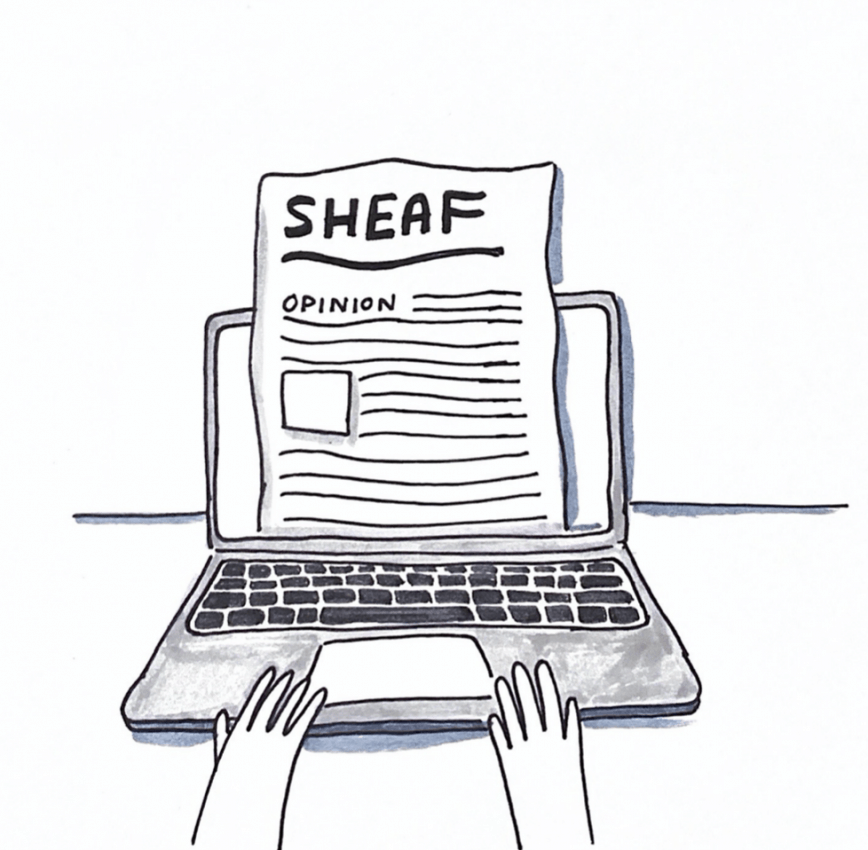
Throughout history, voices from all corners of this world — silently or aloud, in public spaces or in private rooms — have brought injustices and wrongs to light, pushed for change and strived to create a better world.
We hear the power of these voices in Sojourner Truth’s poignant question at the 1851 Women’s Rights Convention: “Ain’t I a woman?”. Her question famously emphasized the need to consider race to realize African American women’s rights.
And in Terry Fox’s unparalleled bravery as he battled cancer and still sought to leave a legacy that would keep striving for change long after himself. It’s his words — “I’ve said to people before that I’m going to do my very best to make it; I’m not going to give up. But I might not make it… if I don’t, the Marathon of Hope better continue” — that inspire millions of Canadians every fall to participate in Terry Fox runs to raise funds for cancer research.
These are just two, out of hundreds of thousands of stories of people using their voices for good. However, do our voices hold the same power today?
It’s not hard to understand why this question arises. The democratization of the internet and technology, as well as the rise of numerous social media platforms, means almost anyone who has something to say can find a way to say it. The creation of online echo chambers also means our opinions often only reach people who already agree with them.
So in this current climate, you may wonder, does my voice even matter? Or is it simply another addition of syllables to what can feel like an already saturated discussion? Just another 280 characters lost to the social media void? Is it, to put it in pandemic-era learning terms, equivalent to sharing a thought in an online conference room, with everyone’s camera and microphone turned off?
Yes, your opinion still matters. Our voices are expressions of the lives we lead — they are the storytellers of our past, speakers of our present and dreamers of our future. Each one of us has a unique voice. No one can replace your voice. It belongs in every discussion and space.
As former United States President Obama put it so eloquently, “those in power — those who benefit from keeping things the way they are — they are counting on your cynicism.”
When we lose faith in the power of our voice to change the status quo, we are effectively giving up our single most important tool in a democracy. Without our voices holding those in power to account, shedding light to injustices and advocating for important causes, our democracy weakens and the train of progress slows to a stop.
Still don’t believe voices can bring about change in 2020? Look no further than the pro-democracy protests in Hong Kong in which millions have taken to the streets in the past year to demand democratic freedoms.
Or the Global Climate Strikes, starting with Greta Thunberg in 2018 in Sweden. The urgency to combat climate change inspired similar strikes globally in over 70 countries, all with a common goal of demanding significant government, corporate and individual action.
The most recent example is the ongoing Black Lives Matter protests, with millions in America and globally marching and calling for racial justice and the dismantling of systemic racism in our society’s institutions.
While these movements may not have achieved all their goals yet they did achieve one instrumental milestone — they catalyzed crucial conversations about democracy, race and the environment.
They pushed for our national dialogue to acknowledge the continued erosion of democratic rights globally, highlighted the systemic racism built into so many of our society’s institutions and pushed us to consider the health of our environment in every government, corporate and personal decision made. The start of any solution-building is having an honest conversation about the problem. We are better for the conversations these movements have started.
Ultimately, all these words are to reaffirm this in every way possible — your opinion matters. Today we find ourselves dealing with a pandemic that has completely changed the way we live, a crippling global economic crisis and in the midst of a long overdue racial reckoning. As students, we deeply feel the rising costs of tuition and living, and the anxieties of securing a well-paying job in an uncertain economy after graduation. And yet, what gives me hope is knowing our voices and ideas, individually and collectively, can create paths to brighter futures.
In this world of ours, we need each one of our voices — educated about the issues, open to having a constructive conversation, and willing to share our personal experience — to fight for a better world. And we must use every platform accessible to us, including the Sheaf’s Opinions section, to advocate.
Raising your voice, not to drown out others, but to contribute to a productive dialogue, doesn’t necessarily mean that change will occur, but it will start something important. Remember, as has been said before, no one can do everything, but we can all do something.
Welcome to the Sheaf Opinions. Your voice matters. Your story matters. Your opinions matter. We can’t wait to be a part of all of your change-making journeys.
—
Vaidehee Lanke | Opinions Editor
Graphic: Anh Phan | Design Editor
Leave a Reply